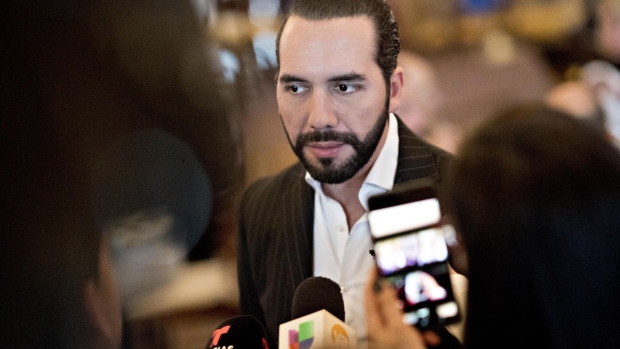Oct 6, 2020
El Salvador’s Bukele Is Chilling Free Speech, Top Editor Says
, Bloomberg News

(Bloomberg) -- In the 16 months since Nayib Bukele became president of El Salvador, hopes that he’d apply his youthful vigor to reducing corruption and restoring institutions have yielded to concerns over autocratic tendencies. Last February, he marched soldiers into the legislature; in April he defied the supreme court.
In recent weeks, focus has turned to attacks on journalists. He’s banned some reporters from news conferences. His government launched an audit of a respected news site, El Faro, that has reported on corruption in government contracts and suggested Bukele may have cut a secret deal with powerful street gangs to cut the murder rate.
The president denies the reports and last month accused the newspaper of laundering money. El Faro director Jose Luis Sanz dismisses the accusation and audit as an attempt to silence the free press.
“Nayib Bukele wants to consolidate a political project and leave no space for pluralism, much less free speech and public questioning from independent newspapers,” Sanz said in an interview. “Freedom of expression in El Salvador is in critical condition.”
U.S. lawmakers, both Democrats and Republicans, have written to Bukele, and the State Department has weighed in. Some 600 writers across the Americas have sent a letter to the Organization of American States.
Sanz is concerned about potential arrests of El Faro journalists and that the government could freeze the newspaper’s bank accounts. Meanwhile, Bukele has launched a government news website to better control the national narrative.
Bukele rejects the accusations, saying he hasn’t taken away anyone’s free speech and that the government has a right to refute press reports.
“Where’s the attack on the press?” Bukele asked journalists. “Who hit you? Who took away your right to publish? You’re all still here. You’re going to go to your newsrooms and write whatever you want.”
Following a late September news conference at which Bukele criticized newspapers for alleged ties to opposition parties and business interests, the Committee to Protect Journalists, a U.S. non-profit, urged him to stop harassing the press. The Center for Justice and International Law, a human rights group, said his government is threatening free speech and criminalizing news outlets.
Last month, a dozen U.S. Democrats sent a letter to Bukele expressing “deep concern regarding the Salvadoran government’s increased hostility toward independent and investigative media.” In a separate letter, six Republican congressmen also sent him a letter citing a “slow but sure departure from the rule of law and norms of democracy.”
©2020 Bloomberg L.P.